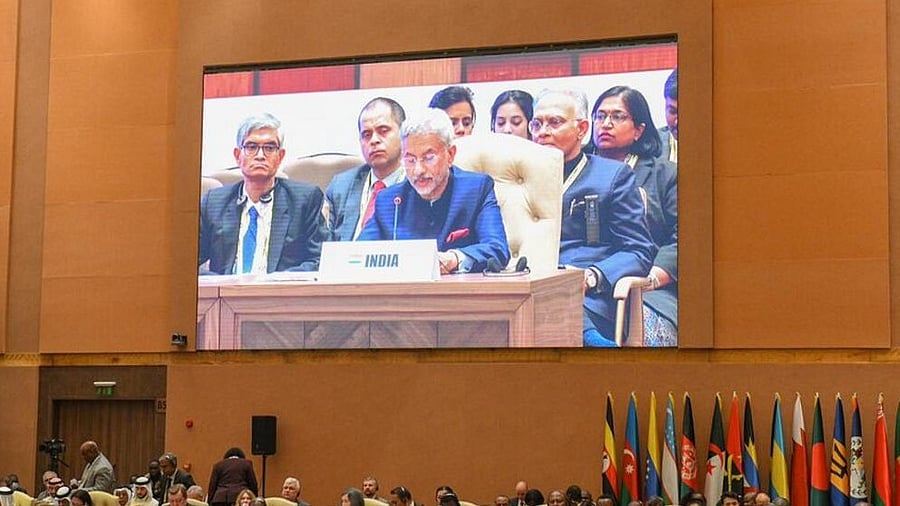
External Affairs Minister S Jaishankar delivers India’s statement at the 19th NAM Summit, in Kampala, Uganda
Credit: PTI Photo
The presence of External Affairs Minister S Jaishankar at the 19th summit of the Non-Aligned Movement in Uganda attests to the fact that despite pouring scorn on the foreign policy of the country's first Prime Minister, the Modi government believes it is in its interests not to shake off this chapter of Jawaharlal Nehru's international legacy. NAM was powered by newly independent African and Asian nations that did not want to be aligned to either of the Cold War blocs.
Nehru's stewardship of NAM, along with Egypt's Gamal Abdel Nasser and Yugoslavia's Josip Tito not only allowed India to punch above its weight in international politics but also gave India a global profile that did not need to be burnished at home or abroad with grand extravaganzas. In the last century, India, a rare democracy in the post-colonial world, was a natural leader of the under-developed and developing world, then known as the “Third World”. Now, while Delhi stakes a claim to leadership of the “Global South”, its aspiration is to sit at the international high table.
In its attempts to balance between both, a so-called “relic” of the much-disparaged Nehruvian past is proving to be Delhi's best bet at pushing the idea of a multipolar world, in which it clearly hopes to be one of the poles. In his remarks, Jaishankar made a pitch for “transforming” an inequitable world through “practical steps”, and offered as an example India's own efforts on this front -- 600 projects in 78 nations, half of them in Africa, capacity-building through training, the sharing of Covid vaccines with 100 nations, and when natural disasters strike, “first responders to the developing world”.
Interestingly, he projected India not as “Vishwaguru” but as “Vishwa Mitra”, and instead of the claim to represent the voice of the Global South that Delhi repeated like a mantra all of 2023, the minister spoke about “drawing strength” from these countries.
Irrespective of these formulations, it is also true that India's ideological distance from NAM, or indeed the Global South, has never been more apparent. With the war in Gaza on top of everyone's mind, the Kampala Declaration was an all-out condemnation of Israel's “illegal military aggression” against “civilians, civilian objects”, and of the “forced displacement of the Palestinian population”, along with a call for an “immediate and durable ceasefire”. It called for urgent steps toward ending Israeli occupation, and a two-state solution on the basis of the pre-1967 borders. In his own remarks at the summit, Jaishankar mentioned the war in Gaza, but made no mention of the appalling civilian casualties, nor of the Global South's unequivocal demand for a ceasefire as articulated in votes at the UN, though he said that “terrorism and hostage-taking are unacceptable”. In the broadest of formulations, he reiterated India's position for a two-state solution. For the makers of “Bharat” then, NAM remains relevant, not so much for the positions it takes, but for its usefulness to Delhi to achieve its “strategic sweet spot”.
